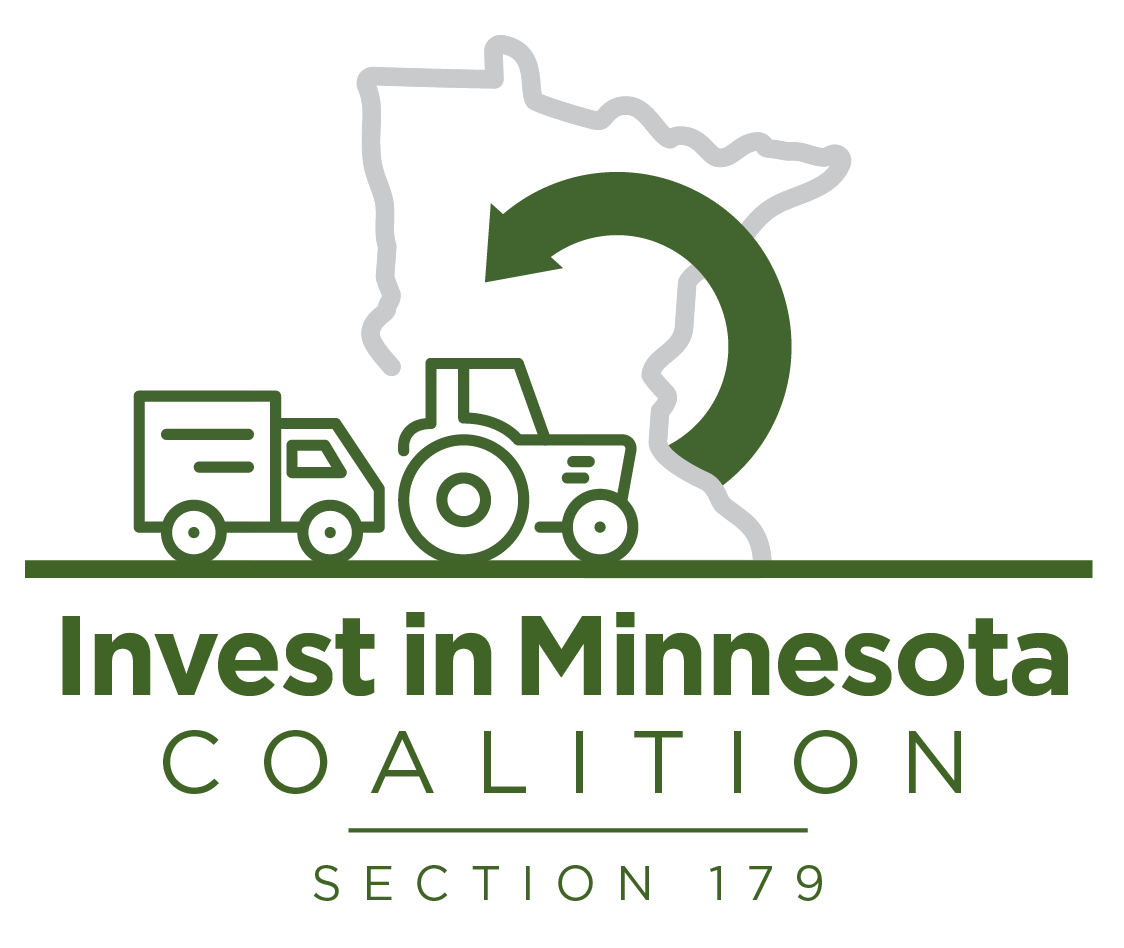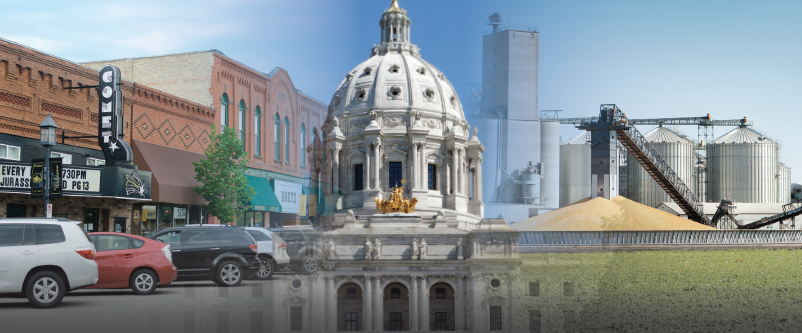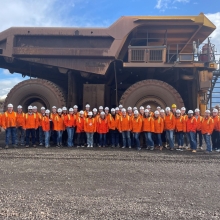Long-awaited tax provision will help small business, farmers


 On Thursday, October 15, the Legislature passed a bill to conform to section 179 expensing effective for tax year 2020 providing $208 million in tax relief over the next three years. The Minnesota Chamber has advocated for this law change for the past three sessions and we are pleased it has been accomplished. Click below to read the full press release.
On Thursday, October 15, the Legislature passed a bill to conform to section 179 expensing effective for tax year 2020 providing $208 million in tax relief over the next three years. The Minnesota Chamber has advocated for this law change for the past three sessions and we are pleased it has been accomplished. Click below to read the full press release.
Section 179 of the federal tax code dictates when businesses can deduct the cost of purchasing certain equipment. In 2019, Minnesota conformed to some federal tax reforms, but not many of the expensing provisions. This put small businesses and farmers at a disadvantage and hit many with retroactive bills.
Now more than ever, it’s critical to support Minnesota small businesses, as our state continues to deal with the public health and financial impacts of the pandemic. The Minnesota Chamber thanks the elected officials who on a bipartisan vote took this step to invest in the employees and communities which these businesses and farms support. This helps lay the foundation to help Minnesota’s economy recover and grow, and retain and create jobs. The tax provisions were passed along with the $1.87 billion bonding bill including $300 million in trunk highway bonds.
Aligning state and federal tax codes for section 179 expensing would:
- Help small businesses and farmers reinvest in Minnesota to help grow our economy.
- Fix retroactive tax increases for like/kind exchanges to 2018 and 2019.
- Improve Minnesota’s competitiveness as most states, including neighboring states, have already conformed with federal law.
- Reduce tax compliance complexity and costs.
- Prevent Minnesota taxpayers from paying more in state taxes than they do on their federal income tax returns.
What is section 179? section 179 refers to the portion of the federal income tax code that determines when businesses can deduct the cost of purchasing certain equipment. Minnesota allows $25,000 for immediate expensing, while the federal government and most states allow $1 million in immediate expensing. This is a timing issue for the deduction and does not permanently lower tax burdens, although some Minnesota taxpayers with future year losses may not be able to fully use the deduction due to the inability to carry forward the deduction.
The 2019 Minnesota tax bill enacted retroactive state income tax increases on many farmers and businesses by conforming to the tax increases from the Federal Tax Cuts and Jobs Act – but did so without adopting most of the federal offsets. Minnesota fully conformed with 1031 federal like-kind exchange rules resulting in an increase in income tax liability for trade-in of certain equipment, but Minnesota did not conform with the tax offset of section 179 immediate expensing. As a result, many businesses and farmers are getting hit with unexpected tax bills due to the now taxable income gain (phantom income) from the trade-in on equipment but without the ability to expense the purchase due to the lack of section 179 conformity. Minnesota taxpayers may now pay more in state income taxes than at the federal level or in most other states when they are investing in equipment.
Invest in Minnesota Coalition
The Invest in Minnesota Coalition consists of over 70 business and agriculture organizations aligning Minnesota’s income tax with the federal rules to encourage greater business investment in Minnesota.
Invest in Minnesota coalition partners include: AgCountry Farm Credit Services, AgriGrowth, Arrowhead Manufacturers and Fabricators Association, Associated Builders and Contractors of Minnesota and North Dakota, Associated General Contractors of Minnesota, Builders Association of Minnesota, Central Minnesota Manufacturers Association, Compeer Financial, Cooperative Network, Hospitality Minnesota, Housing First Minnesota, Lakes Area Manufacturers Alliance, MetalCasters of Minnesota, Minnesota Automobile Dealers Association, Minnesota Farm Bureau, Minnesota Chamber of Commerce, Minnesota Corn Growers Association, Minnesota Grocers Association, Minnesota Mechanical Contractors Association, Minnesota Petroleum Marketers Association, Minnesota Pork Producers Association, Minnesota Precision Manufacturing Association, Minnesota Retailers Association, Minnesota Rural Counties, Minnesota Society of CPAs, Minnesota Trucking Association, Minnesota Turkey Growers Association, NFIB, Pioneer Equipment, Printing Industry Midwest, and the Tri-State Manufacturers’ Association.


